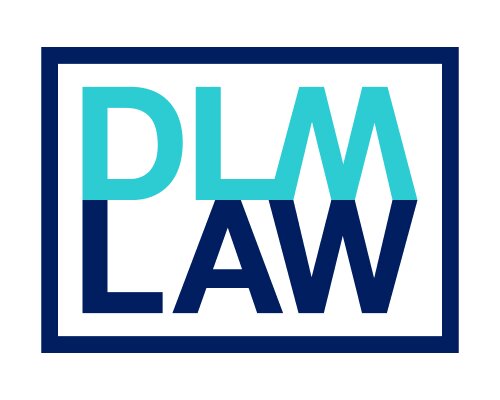Best Health Care Lawyers in Kansas City
Share your needs with us, get contacted by law firms.
Free. Takes 2 min.
List of the best lawyers in Kansas City, United States
About Health Care Law in Kansas City, United States:
Health care law in Kansas City, United States governs the rules and regulations surrounding the healthcare industry, including patient rights, healthcare provider responsibilities, medical malpractice, healthcare insurance, and more. Understanding these laws is crucial for both individuals seeking medical treatment and healthcare professionals providing care.
Why You May Need a Lawyer:
You may need a lawyer in health care law in Kansas City if you are facing medical malpractice, disputes with healthcare providers or insurance companies, issues with patient rights, or regulatory compliance matters. A lawyer can help you navigate complex healthcare laws and protect your rights in these situations.
Local Laws Overview:
In Kansas City, United States, health care laws are governed at both the federal and state levels. Key aspects of local laws include regulations set by the Kansas Department of Health and Environment, licensing requirements for healthcare professionals, medical malpractice laws, Medicaid and Medicare regulations, and more.
Frequently Asked Questions:
1. What are my rights as a patient in Kansas City?
Patients in Kansas City have the right to receive quality medical care, access their medical records, make informed decisions about their healthcare, and file complaints against healthcare providers if necessary.
2. How can I file a medical malpractice claim in Kansas City?
To file a medical malpractice claim in Kansas City, you must prove that a healthcare provider acted negligently, causing harm or injury. It's advisable to consult with a lawyer experienced in medical malpractice cases to guide you through the process.
3. What are the licensing requirements for healthcare professionals in Kansas City?
Healthcare professionals in Kansas City must obtain the necessary licenses and certifications to practice legally. Each type of healthcare professional, whether a doctor, nurse, or pharmacist, has specific licensing requirements set by the state.
4. How does Medicaid and Medicare work in Kansas City?
Medicaid and Medicare are federal healthcare programs that provide medical coverage to eligible individuals in Kansas City. Each program has its own set of eligibility criteria and benefits, so it's essential to understand how they work to access the healthcare services you need.
5. What are the regulations surrounding healthcare insurance in Kansas City?
Healthcare insurance in Kansas City is regulated to ensure consumers have access to affordable and comprehensive coverage. Understanding your rights as a policyholder and the obligations of insurance companies can help you make informed decisions about your healthcare coverage.
6. Can I refuse medical treatment in Kansas City?
In Kansas City, individuals have the right to refuse medical treatment, except in certain circumstances where treatment is necessary to save a life. It's important to communicate your wishes clearly to healthcare providers and consult with a lawyer if you encounter any disputes.
7. How can I protect my rights as a healthcare consumer in Kansas City?
To protect your rights as a healthcare consumer in Kansas City, you can stay informed about healthcare laws, ask questions about your medical treatment, review your medical records, and seek legal advice if you believe your rights have been violated.
8. Are there resources available for low-income individuals in need of healthcare services in Kansas City?
There are resources available for low-income individuals in Kansas City, including community health centers, Medicaid, and charitable organizations that provide healthcare services at a reduced cost or for free. Contact local healthcare providers or social services agencies for more information.
9. What should I do if I suspect medical malpractice in Kansas City?
If you suspect medical malpractice in Kansas City, document the details of the incident, gather any relevant medical records or evidence, and consult with a lawyer experienced in medical malpractice cases. A lawyer can help you determine if you have a valid claim and guide you through the legal process.
10. How can I stay informed about changes in healthcare laws in Kansas City?
To stay informed about changes in healthcare laws in Kansas City, you can follow updates from the Kansas Department of Health and Environment, attend healthcare law seminars or workshops, and consult with a lawyer specializing in health care law for guidance on any legal changes that may affect you.
Additional Resources:
For additional resources related to health care law in Kansas City, you can contact the Kansas Department of Health and Environment, the Kansas Health Institute, the Kansas Hospital Association, and legal aid organizations that provide free or low-cost legal services to those in need.
Next Steps:
If you require legal assistance in health care law in Kansas City, consider scheduling a consultation with a lawyer experienced in healthcare law. A lawyer can assess your situation, provide guidance on your legal options, and help you protect your rights in healthcare-related matters.
Lawzana helps you find the best lawyers and law firms in Kansas City through a curated and pre-screened list of qualified legal professionals. Our platform offers rankings and detailed profiles of attorneys and law firms, allowing you to compare based on practice areas, including Health Care, experience, and client feedback.
Each profile includes a description of the firm's areas of practice, client reviews, team members and partners, year of establishment, spoken languages, office locations, contact information, social media presence, and any published articles or resources. Most firms on our platform speak English and are experienced in both local and international legal matters.
Get a quote from top-rated law firms in Kansas City, United States — quickly, securely, and without unnecessary hassle.
Disclaimer:
The information provided on this page is for general informational purposes only and does not constitute legal advice. While we strive to ensure the accuracy and relevance of the content, legal information may change over time, and interpretations of the law can vary. You should always consult with a qualified legal professional for advice specific to your situation.
We disclaim all liability for actions taken or not taken based on the content of this page. If you believe any information is incorrect or outdated, please contact us, and we will review and update it where appropriate.









